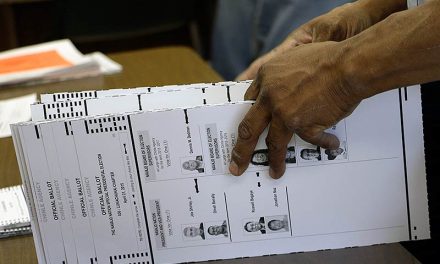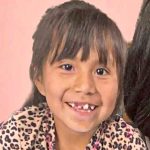
Proclamation underlines mental, emotional health
WINDOW ROCK
On Monday (May 2), President Jonathan Nez proclaimed the month of May as “?tsáhakees Silah’igii Baa ‘Áhayá,” or “Navajo Nation Mental Health Awareness Month,” saying the COVID-19 pandemic has impacted the mental health of citizens of all ages.
“In many ways, the pandemic has magnified some of the modern-day monsters in our communities,” said Nez. “Over the past two years, we’ve experienced higher levels of stress, trauma, anxiety, depression, and grief, but through the teachings of our elders we remain strong and continue to overcome.”
The proclamation estimates that about one in five Americans experience a mental illness, yet only about one third of them will get treatment, and even fewer in tribal communities.
The Navajo Nation Division of Behavioral and Mental Health Services has created a Mental Health Coalition that has been providing outreach and support for children, adults, families, and communities.
The proclamation also states that mental health is often life-threatening, and early detection and treatment can profoundly facilitate recovery and healing.
In conjunction with national “National Mental Health Awareness Month,” the proclamation encourages those living with mental health conditions to get the help they need by ensuring they have access to the support and resources they deserve.
Navajo treatment center
The Navajo Division of Social Services’ Navajo Treatment Center for Children and Their Families is also there to help.
“(The center) is a specialized children’s program that provides outpatient therapeutic services to children and families,” said Program Manager Antoinette Miller.
“The program provides treatment services to the high risk and at-risk children from the age of 4-17 who are experiencing trauma,” she said.
Miller said the center provides therapy/counseling services to high-risk and at-risk Navajo children and families.
“In the second quarter of 2022, the total number of children and families receiving depression and grief services was 110,” said Miller.
In Fiscal Year 2021, the center provided therapy/counseling to 755 individuals on the Navajo Nation.
“The program complements the Western treatment with Navajo traditional services,” said Miller. “The purpose is to respect the families that still honor their cultural and traditional beliefs.”
The traditional component provided services to 33 children and families for the second quarter of 2022 and 534 services in Fiscal Year 2021 for children and their families, she said.
The center also provides prevention information to children, youth and families through live radio forums and public service announcements, early intervention strategies and positive youth development programming to reduce risk factors.
The total number of individuals receiving prevention services for the second quarter of 2022 was 69 and, for Fiscal Year 2021, a total number of 1,258 children and their families’ received services.
The program also provides information on topics such as traditional male and female roles, fatherhood, methamphetamines, substance use and abuse, signs and symptoms of suicide and active parenting.
‘A sign of strength’
The president’s office urged that it is more critical than ever to reduce the stigma around the mental health struggles of others. Stigma and fear of discrimination may stop many who could benefit from mental health services from seeking help.
“If you know of someone in your home or community struggling with mental health issues, lend a hand to get them help and support,” said Vice President Myron Lizer.
For behavioral health services, https://www.nndbmhs.org or 928-871-6240.
For family counseling services, https://www.nndss.navajo-nsn.gov or 928-871-7679.








 Highway 264,
Highway 264, I-40, WB @ Winslow
I-40, WB @ Winslow